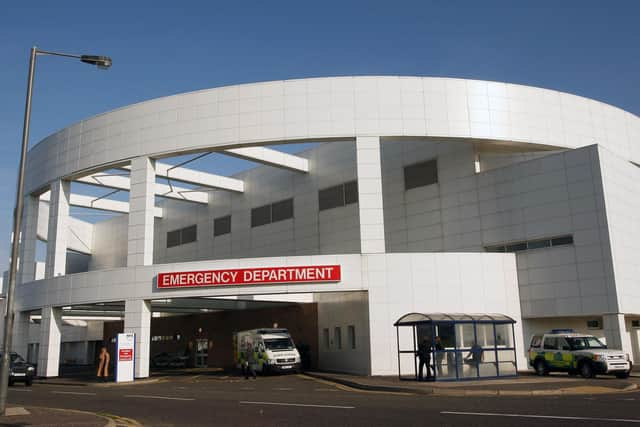Edinburgh's Royal Infirmary named as PFI deal which will mean large bill for taxpayers when contract ends
and live on Freeview channel 276
A Lothian MSP has called for “more transparency” over the cost to taxpayers of controversial Private Finance Initiative (PFI) contracts like the one for Edinburgh’s Royal Infirmary as they reach their expiry date.
An investigation named the Infirmary among 11 PFI deals in Scotland where public bodies will need to pay the PFI provider a fee or the market value for the property if they want to take full control of the building when the contract ends. In most PFI deals – where a private consortium builds, owns and maintains a hospital, school or other property in return for an annual fee – the facilities are just handed over to the public bodies using them at the end of the contract.
Advertisement
Hide AdAdvertisement
Hide AdBut according to the investigation by the BBC, the provisions of the 11 contracts which they identified mean tens of millions of pounds will be needed to bring these buildings into state hands. Tippethill community hospital, Bathgate, is named along with the Royal Infirmary as one of those involved.


Lothian Tory MSP said Miles Briggs: “These projects are coming to the end of their contract and value for money for the taxpayer has clearly not been properly considered in terms of where we take it from now. We’re not really sure how big the price tag is for taking on these contracts – in some cases it might not even be economically worth taking them on.
"I am concerned how NHS Lothian, which is the lowest-funded health board in Scotland, will be able to respond to what will be an additional cost. We need to look at value for money for the taxpayer and what liability health boards are going to face. More transparency around this is key for us to be able to get to the bottom of what this is going to cost the taxpayers and we need that to happen fairly urgently.
"At the time these contracts looked like they were good value for money, but people question that today. We need to consider whether or not different models which are available today can be adapted to take on older contracts.”
Advertisement
Hide AdAdvertisement
Hide AdThe contract for the Infirmary, which was one of the earliest projects to be built using PFI, dates back to 1998 and the hospital opened in 2003. The BBC said about £1.1bn in PFI payments will have been made to the consortium Consort by the time the contract expires in 2027.
And it said a complicated deal meant that NHS Lothian would then enter a secondary contract period, potentially lasting until 2053, where it will still pay a "management charge" to Consort but can give three months' notice to terminate the arrangement and the building would revert to public hands. But if NHS Lothian did give notice it would have to pay Consort the "net present value" of this management fee over the remainder of the secondary period.
NHS Lothian last year launched a formal dispute with Consort over maintenance failings at the Infimary. The health board said the two side were now working through an improvement plan to address the issues.
The PFI contract for Tippethill House Hospital comes to an end September 2025, although an associated ground lease arrangement lasts until 2098. NHS Lothian said the contract allows a period for both parties to enter discussions on future arrangements including an extension of the current provision, which is currently being explored with the provider.
Advertisement
Hide AdAdvertisement
Hide AdEdinburgh Southern Labour MSP Daniel Johnson said he believed the Scottish Government was well placed to obtain a good deal over the Royal Infirmary when the current contract ended. He said: “We need to learn the lessons from these deals, but the Scottish Government is in a very strong negotiating position. What else is this hospital going to be used for? I expect them to negotiate very robustly and we should be able to secure the long-term future of the hospital on a very good basis.
"The question is: who else is going to buy it? Something’s only worth what another person is willing to pay for it instead of you.”